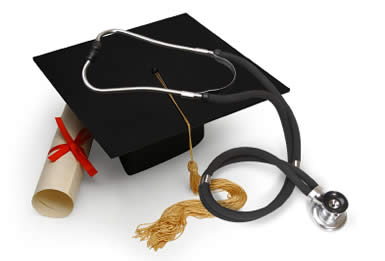The posting in the portal of the Keffi Old Boys WhatsApp group looked routine, that last morning of last year.
‘MDCN inducts first KASU-trained medical doctors’. Induction by the MDCN – Medical and Dental Council of Nigeria – of new medical doctors is not a piece of excitable news, even if it is related to one of the young state universities, which KASU is. May be the posting popped up in our portal, I reasoned, because the Provost of the KASU College of Medicine, Professor Abdullahi Abba and the Guest Speaker at the occasion, Professor Musa Borodo, the President, National Postgraduate Medical College of Nigeria (NPMCN), are both well-regarded old boys of the college. It was only when I went through the posting and found that the graduating students had spent eleven years to attain a medical degree that got me gasping. ‘Eleven years for a medical degree’, I muttered to myself and gasped again.
There was plenty of chest-beating on the occasion. All the speeches highlighted the resilience of the stranded medical students and their bewildered tutors enduring the tardiness of their government to meet the requirements of accreditation, raising their hopes, times and again, and dashing them again and again. What is remarkable about the KASU case is that the Medical College kept the faith and fixed its eyes firmly on the goal. While working towards the goal, KASU was helped by an education-friendlier, and a more focussed government, to attain the ultimate prize.
I made enquiries around and found that the medical school was founded in 2008 as one of the faculties of Kaduna State University (KASU) and it welcomed its first set of 46 students the following year. However, due to an unimaginable sloppiness by the government of the day, the pioneer medical students started without the wherewithal for proper medical education. For a start, there wasn’t even a teaching hospital on the ground and as time went on, other deficiencies manifested and as a result, all the accreditation institutions snubbed the college. Accreditation denied, the beleaguered students were left languishing in the cold, year in year out, not knowing when to graduate.
I understand that while KASU’s case had a triumphant finish, that of Kogi State University, Ayingba, is still playing out. The university took in its first set of medical students in 2012. The teaching hospital that was started five years ago to earn the accreditation points is still wallowing in the doldrums with no clear date of completion. That’s why nine years later, due to non-accreditation, the university is yet to earn medical doctors to its name. At best, the students are farmed out, at some intervals, to other accredited institutions in the country to continue their studies. Even KASU at a stage in 2014 when accreditation proved well-nigh impossible had to send 29 students to a university in Uganda to complete the medical course.
You might think this is a phenomenon that is endemic only to the state universities. Wrong. Some years back, the University of Abuja, funded and run by the federal government, had a running battle with accreditation agencies affecting some of its courses. The Medical College was chiefly affected due to its many deficiencies, particularly the lack of a functional teaching hospital. Its pioneer medical students spent a record 12 years of heart-wrenching anxiety to graduate. In an interview carried in the Punch Newspaper, the star medical student of the set, Dr Dahiru Adamu Bara, expressed their collective sadness at the long period it took to graduate:
‘We lost time, a lot of resources and energy and so many of our colleagues are in high places already. I have friends who have a Ph.D. now. I have friends who are senior registrars in other hospitals, while I’m just starting my houseman internship. There is a lot that have been lost, and that cannot be counted or quantified, but hopefully one may be able to regain it one way or the other.”’
The quest for quality medical doctors for the country is really a challenging one. This is what the guest speaker at the KASU ceremony, Professor Musa Borodo, brilliantly addressed in his paper titled: Challenges of Medical Education in Nigeria: Peculiarities of State-Owned Universities. Already, the country is seriously deficient. We are nowhere near the WHO minimum requirement of a doctor/population ratio of 1:1000. The figures from MDCN indicate that as of 2018 the number of doctors in Nigeria was 47,219 giving the nation a doctor/population ratio of 1:4255. Governments at all levels exhibit a lackadaisical attitude towards medical education. Not enough medical schools are being established. And when the governments decide to build, the schools are starved of funds to acquire the right equipment and infrastructure necessary for accreditation.
Considering the number of medical schools and their low level of intake, it would take Nigeria years to attain the desired number of doctors, even assuming the population remains static and the brain drain is frozen. Meanwhile, Professor Borodo proposes a declaration of a state of emergency in medical manpower production by all governments and the private sector and injecting adequate funding to deal with the shortages. Additional measures could include undertaking reforms in the curriculum development aimed at possibly reducing the number of years, students spend to graduate, without reducing the quality.
Nothing short of this will do. I agree with him.

 Join Daily Trust WhatsApp Community For Quick Access To News and Happenings Around You.
Join Daily Trust WhatsApp Community For Quick Access To News and Happenings Around You.



